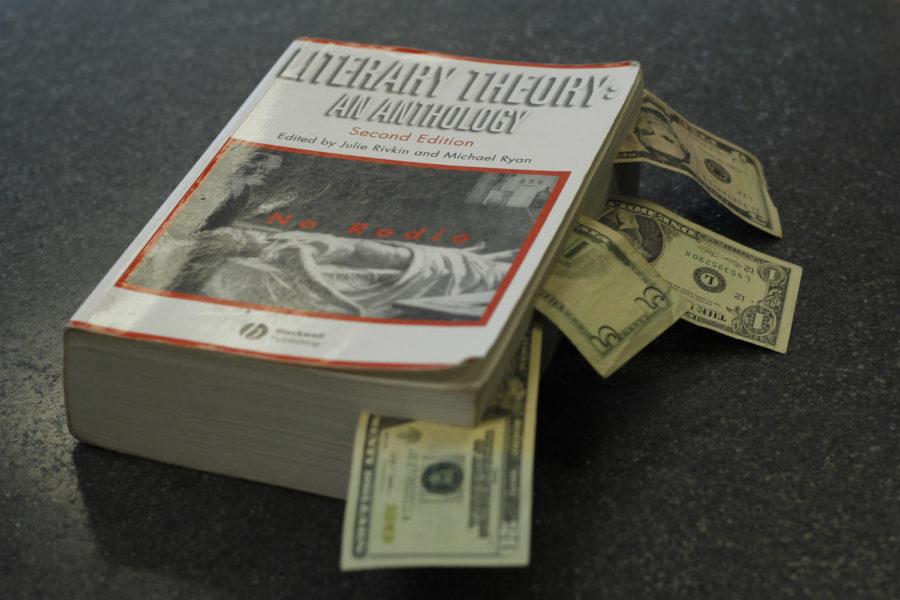Mayfield: Professors selling own textbook to students unfair
Brian Achenbach/Iowa State Daily
Professors may need money from the royalties from the textbooks they wrote, but it is questionable to get that money from students who are already paying tuition for the same professor to teach them.
September 18, 2013
If a doctor tells his or her patients to buy medicine from a pharmacy that the doctor co-owns, no one would argue that the doctor wasn’t acting morally wrong. There would be an outcry and most likely the doctor would have his or her medical license suspended. Yet every semester, professors do the exact same thing to students who take their classes; professors write textbooks and then have their students to buy them as required reading.
I understand that professors need the money from the royalties they earn from their textbooks. It is hard to get by today on only one salary as living costs are increasingly expensive; as a student, I sympathize. But I think it’s more than questionable to get royalties from students who already are paying their professors through their tuition.
That isn’t to say professors shouldn’t write textbooks either. The knowledge they have should be shared — and yes, for a little money. We are a capitalistic society after all, and nothing is truly free. I believe in hard work and dedication and the ability to reap the rewards from it. Professors can charge other students to use their textbooks but should not charge their own students.
I also realize why professors like to use textbooks. They help keep things organized and everyone on the same page, especially in big, entry-level classes. Textbooks also help students control their own learning, at least to some extent. It gives students the responsibility that is often learned in college to become a well-functioning adult.
Textbooks, for better or worse, are necessary. But what is not necessary is forcing students to help pay a professor’s supplemental income.
Iowa State boasts professors who are experts in their fields, many of whom have written textbooks on the subjects that they teach. I don’t know about anyone else, but as a student, I feel I have come to Iowa State to gain an education from those experts, not from their textbooks. I pay a lot in tuition to learn, so if I wanted to be taught just from a textbook that someone from Iowa State wrote, I could go to a community college that offered the classes I need and use ISU professors’ textbooks for much less.
The professors that are renowned in their fields should teach a lecture-style class. For example, I have one professor who doesn’t require textbooks in any of the classes he teaches. He writes down important names and terms on the board, and they are accompanied by slides with pictures regarding those names and terms. He then gives verbal lectures that students take notes over. After every lecture, students then take six-point quizzes.
I have a lot of respect for this professor. He knows his subject very well and has an organized system of teaching students. He gives points for attendance, which are the six-point quizzes, he makes students review what was covered in class and all of the test material comes from those lectures as well. This works in all classes regardless of lecture hall size.
If a professor wrote a textbook with someone else, that professor still has the legal rights to the book and can use material that they have written to teach. I have another professor who gave us his book online for free. Everything that we need to know for that class is on a website that he made just for his classes, thus benefiting students who are already paying for his class.
There really are no good reasons why professors make their students pay royalties. If you don’t take a certain class, you won’t graduate. Sometimes you can only take a class with a certain professor to fulfill a graduation requirement, and for someone to take advantage of a student who is already paying so much to be there in the first place is wrong.
Unless people — professors and students alike — start caring, things will not change. Professors earning textbook royalties from students will continue to be a problem unless it is spoken out against.







